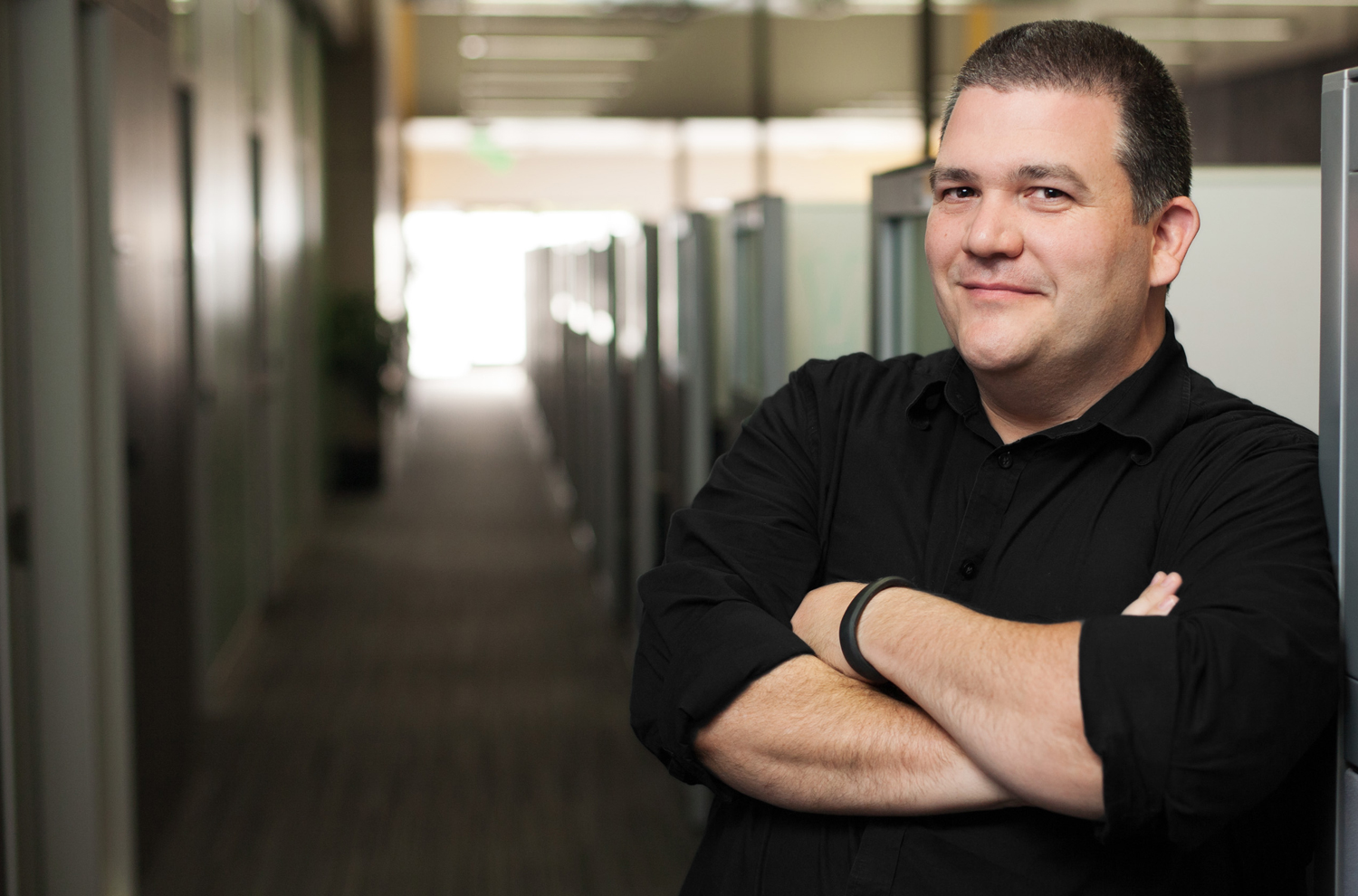An Interview with C.C. Chapman – The Influencer Series
I recently had a chance to check in with C.C. Chapman, Storyteller, Explorer & Humanitarian to talk about some of the changes that we are seeing in marketing industry. Specifically we discussed influence and trust – two areas of great interest to many of us. So, grab a cup of coffee and take some time to check out what C.C. shares with us in the Influencer Series.
MacLean: The industry has certainly changed over the last five years. In the last two years in particular however, the changes have been pretty prolific in terms of the numbers of people using social networks, changing platforms and businesses trying to leverage social to their advantage. Despite all of this change, what do you consider the most important changes and why?
C.C.: “I don’t believe there is one single thing, but since you asked I’d have to say it is the smart phone.
Just a few years ago you’d still find many users with a phone that couldn’t take advantage of everything we take for granted now. But, the days of a flip phone are long gone and now everyone is carrying around a full production studio in their pockets.
They assume that they can pull it out of their pocket and interact with any brand they want to. They share great and horrible experiences immediately and rightfully assume that the brand is listening.
This is causing shifts in every corner of business and will continue to evolve.”
MacLean: How important do you think trust is for both personal and professional brands? And, do you think that people are putting enough focus on building trust?
C.C.: “I think it is crucial. I grew up in small town New Hampshire and we did business with people we trusted.
Today, I don’t care how big a business is, customers want to feel like they can trust them.
Businesses are not focusing enough on this. Sure, you must have a good product or service first, but after that even if a product is a bit more expensive, customers will buy from the one they have some form of relationship with and trust is very important here.
There are businesses that I’ll never buy from again based on things they’ve done or said. Doesn’t matter how good or cheap their product is.”
MacLean: With your new book, 101 Steps to Making Videos Like a Pro, where do you think video is going and are there limitations as to how brands should be using video?
C.C.: “Zero limitations on how a brand should be using any technology if it makes sense to them and their customers.
Video is a great medium because humans love to consume it. As bandwidth gets better and better, we can now watch videos on our phones wherever we are.
Blows my mind that every company doesn’t have a video demo of their product. Eagle Creek is one of my favorite brands and they have simple, but informative videos of each of their products. Being able to see their luggage beyond images is important in my buying decision.
When a customer is buying products online, video will help them get a better feel for the product. it is vital.
Mark Yoshimoto Nemcoff and I wrote the book because we wanted a concise guide that could help anyone get started with video. We saw too many people thinking they could just whip out their phone and shoot something. We both know that you can do this, but we also know that planning and production are important too.”
 MacLean: You are clearly recognized as an Industry Influencer. Where do you think that we are headed with Influencers? (Influencer is a term that is being thrown about in a lot of different capacities today. Many people use “influencer” to describe people that blog, have a good following and they pay to write about their brand. I however, am referring to the more traditional definition of a person who has industry expertise, lives, speaks and writes about their industry.
MacLean: You are clearly recognized as an Industry Influencer. Where do you think that we are headed with Influencers? (Influencer is a term that is being thrown about in a lot of different capacities today. Many people use “influencer” to describe people that blog, have a good following and they pay to write about their brand. I however, am referring to the more traditional definition of a person who has industry expertise, lives, speaks and writes about their industry.
C.C.: Influencers have always been around. The difference is that today the social nature of the web empowers more people to be influential to a wider audience.
I hope brands and agencies will begin to realize that while a large audience is definitely helpful, that true influence can’t be measured by a number or score.
Stop and think about the people who are influential in your life. I know that you’ll have people who influence your technology decisions, career moves and something as simple as what to cook for dinner. That is real influence, not some Klout score or other measurement number.”
MacLean: Do you think that there will be a new role emerge with respect to Influencers? There are many companies now that target “influential bloggers” for pay in order to get them to write positive blogs, whereas I position you and others like you in a different class. To me I see you more as the real thought-leaders and people who actually can influence others. I would go somewhere to hear you speak versus some of the bloggers being targeted.
C.C.: “Brands have always wanted to get their products in the hands of people that they think would influence others to buy their products. While the tactics may have changed, this certainly never will and it makes sense.
I get sent a lot of products to review and invited to press trips and influencer events. I always make it clear that I can’t promise a good review or a review at all because sometimes what shows up in my mailbox has no interest to me at all.
The most influential people know this. They are busy. They have a lot on their plate. They write and create around things that get their attention.
All that being said, I have been part of several long term influencer/advocate programs and in the best ones they do compensate the members in some form. This isn’t in exchange for positive reviews, but for honest use, mentions and sharing around the products. They are also long term because while I may write a blog post about a great weekend with a brand, over time and the more I use something they more I’m going to naturally talk about it.
Also, my advice for brands looking to work with influencers is to insure that experiences are part of the equation as well. Giving me a camera to try out is cool, but giving me that camera and bringing me to a beautiful location to shoot with it is even better. It instantly puts an influencer in a situation where they couldn’t imagine creating and sharing their thought about the product right there.”
MacLean: How do you think that being an influencer impacts your brand and positions you as a thought-leader and a person who is trust-worthy?
C.C.: “You certainly have some interesting questions.
Me being trust worthy is in my DNA and who I am. I’m a person and not a brand.
Ever word I write, photo I share and company I work with shares something about me to the world. Over the years people have looked to me for my knowledge and experience and I’ve worked hard to make sure that I’m constantly helping others. Does that give me influence? It certainly does, but I never wake up and think, “ok lets make me more influential today.” I know there are people who create with that motivation, but it has never appealed to me.”
MacLean: Have you ever declined an invitation to speak at, or participate in an event because the values of the event/organization/person didn’t align with yours? If so, without giving up names/details that would reveal who it was, can you give some context of the why?
C.C.: “I have done both. In most cases it is because how they’ve treated other people I care about.
In the speakers world, we share when an event screws us over or doesn’t treat us very well. It is amazing how many events out there have no respect for their speakers and that gets around very quickly.
Same goes for brands. I can think of several opportunities that I’ve politely declined based on their actions in the past. It doesn’t happen often, but I can think of a few examples. There is also definitely a list of brands that I’d never work with because of what they do and say.”
MacLean: Based on your knowledge, experience and expertise, what else can brands be doing to build trust? Are there other forms of digital media that should help with this?
C.C.: “It really boils down to treating every customer with respect. Listen to their complaints and help in every way possible. You can’t always fix the issue, but making sure they know that they are valued and heard goes a long way.
Make sure that no matter what channel it is, that if you are there, that you are really there and active. You don’t get to choose what channels your customers are going to reach out on. You can direct them to the best ones for you, but in the end it is up to them.
Work every day to keep your current customers happy and to make new ones feel welcomed. This isn’t a technology issue, but a human one.”
Well, there you have it. C.C.as always brings great perspective and down-to-earth commentary. As I embark on another significant research area – focusing on influence and trust, C.C.’s insights really resonate with me. I am sure that you will feel the same.
I want to thank C.C. for taking the time to answer my questions. I am always amazed by the kindness and willingness of our industry’s greatest contributors who are so willing to share and help others.


Leave a Reply
Want to join the discussion?Feel free to contribute!